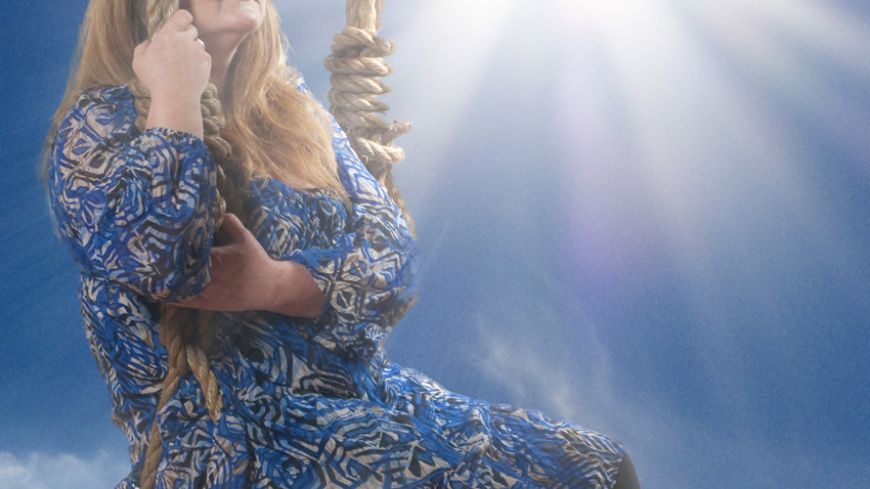
Death has never had a face to me. It does not have character. It does not have personality. It does not think or feel. It is not good or evil. It is not from anywhere and it does not go anywhere. It is an event. It is an end. It is the end.
Yet, we insist on giving it a face. We insist on giving it a character and all of the other traits that we consider our own and, indeed, those of most living things. And Death is not alone. There is an entire cast of mythological characters that prance around in the daft pantomime of our subconscious. Why? There are many reasons depending on which particular costume you are talking about. But when it comes to the big three (Death, God and the Devil), it is the absolute unacceptance and fear of the unknown and truth.
This may seem extraordinarily insensitive of me to say considering the play, where it has come from and Jo Clifford’s journey up until this point. However, one must be brutally honest about such things and not be spellbinded by the whirlwind of emotion that surrounds it.
The play focuses on an average, nuclear family. Everything, it seems, is relatively normal. Both parents work hard and love one another very much. The son is a moody teenager that hides away in his room, living through his favourite computer game. And the daughter is a fashion crazy girly girl that has a talent for looking good and annoying her brother.
But then, tragedy strikes. Mary, the mother, unexpectedly has a stroke and dies. Whilst the family grieve and assess how their lives will be shaped from here, Mary is greeted by the charming and smartly dressed, Death, whom assists her in understanding and acceptance. At peace and under the guidance of Death, she departs and journeys toward her final destination.
Jo Clifford’s Every One is an extremely personal play, echoing the themes of her previous and more ritualistic piece Leave To Remain. Both are undoubtedly affecting and should be applauded for tackling a subject that most people tend to leave alone, for reasons that are obvious and perfectly natural.
However, for me, they both trip up at the same point.
Every One is divided into two parts. One is the experience of the family. Realising that, as the computer-game-loving son frequently points out, reality is not always happy. Unlike the TV shows and games that he indulges in, in the real world things do not always work out. It is about the grief, but also about the appreciation of life and perhaps putting grief to a positive use. This is the real section. The true section and should have been the only section.
The second section introduces us to the character Death, discussions of a frustrated God and the eventual ascent to heaven. After all that was trying to be said in the other section about reality and living in the real world, the play seems to completely contradict itself. It’s poetic, it’s quaint and I guess for superstitious people it provides a little comfort. But these things aren’t real. It provides false hope and should not be brought up in a serious discussion about death. It holds about as much validity as the idea that the world is balanced on the back of a turtle or that Snow White was actually Jack the Ripper.
That said, it is not by any means a bad play. Inevitably, given the subject matter, it can be quite depressing in patches, but it is also life-affirming. It is funny, moving and performed by a cast that you sense truly believes in what they are doing. I couldn’t help but see myself in the characters’ position and my heart truly ached for them.
It is powerful. It is beautiful. But it is ultimately flawed by the same thing that makes it great: it's human frailty. The need to create a face. To have the pantomime. To blur truth.
Show times: 19th March - 10th April at 7:45pm

